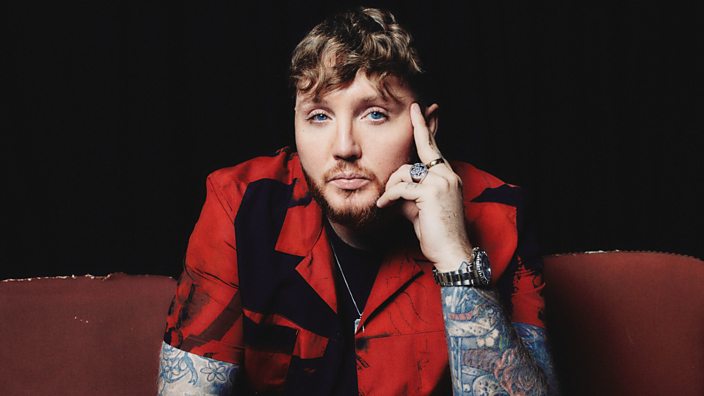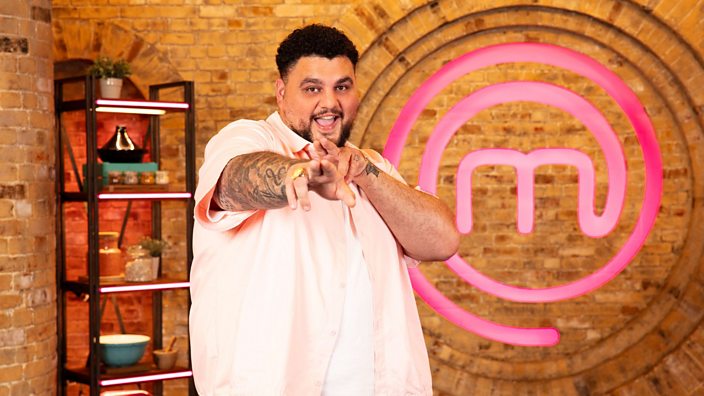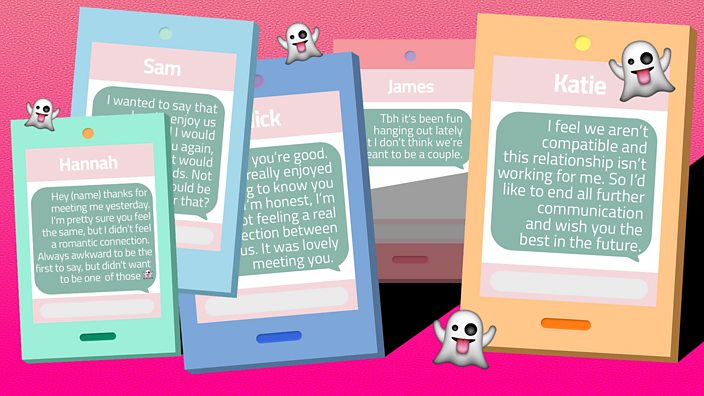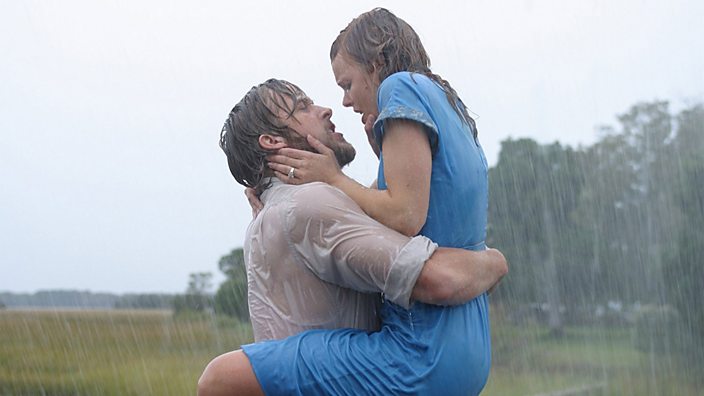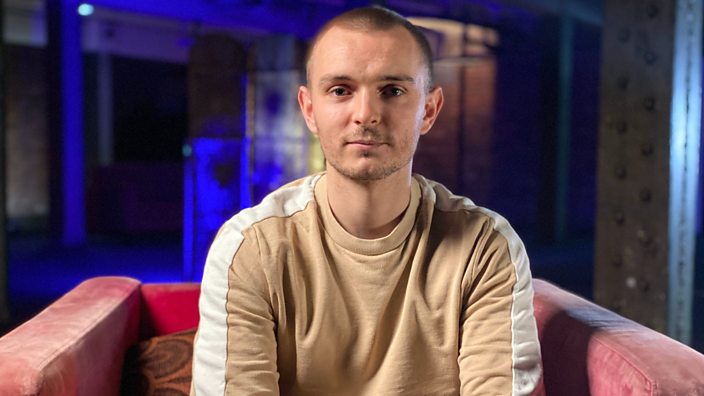 BBC/Blakeway North Productions
BBC/Blakeway North ProductionsGambling addiction: 'A vicious cycle I couldn't get out of'
A new documentary looks at the problems around gambling addiction in the UK.
"It was a vicious cycle I couldn't get out of. It was awful."
Harri, from north Wales, placed his first bet just after he turned 18.
And once he started university, his gambling began to escalate as he found himself betting on increasingly obscure matches like hockey and netball. He quickly spent his entire student loan and then turned to his university friends, asking them to lend him money. He'd also become hooked on online roulette.
"The roulette is instant. It's really exciting," he says. "They used to give me a £50 free bet because of the amount I used to gamble.
"I was just mentally and physically drained. It took over every part of my life really quickly. I was thinking about it 24/7."
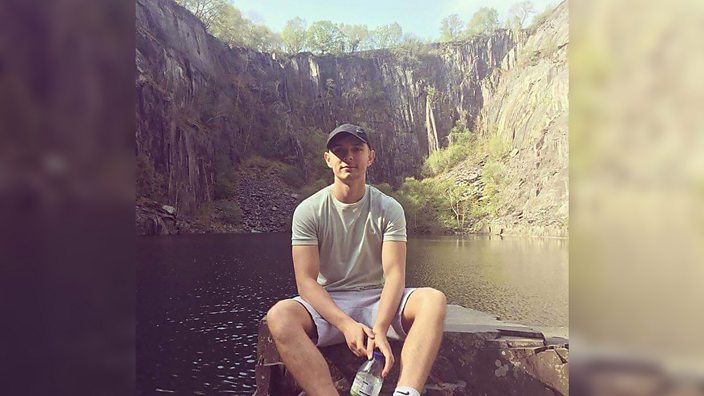 BBC/Blakeway North Productions
BBC/Blakeway North ProductionsHarri eventually gave up his university work and, at one point, struggled to see a way forward. "I remember I'd lost all hope. I just wanted all this pain to end."
Harri, 24, tells his story in the BBC Three documentary Gambling: A Game of Life and Death. The documentary also speaks to the family members of Jack Ritchie, a 24-year-old teacher who took his own life while dealing with a gambling addiction. The film sees how the two young men became hooked, the attempts they made to overcome their addiction and the reasons recovery seemed so impossible.
A government spokesperson said: "We are undertaking the most comprehensive review of gambling laws in 15 years to ensure they are fit for the digital age. As we have said all along, we will be publishing a White Paper as part of a review of gambling legislation and are planning to do so as soon as possible."
It has been reported that the government review of current gambling laws has been delayed until a new Conservative leader is in place.
Gambling addiction: What you need to know...
Dr Matthew Gaskell is a psychologist and the clinical lead for the NHS' Northern Gambling Service, which was set up to provide specialist addiction support to people affected by gambling addiction. He sees a lot of young patients, especially football and sports fans.
"We see a lot of people whose only problem is gambling addiction," he says. "They've come into this area innocently to just experiment and enjoy the [gambling] product thinking it's entertainment but they're being ensnared by the addictive nature of them and the targeted marketing of the industry.
"There are surveys to suggest this is a major public health problem."
Professor Agnes Nairn, co-director of the Gambling Harms Research Centre at the University of Bristol, said it's estimated that more than 50,000 children aged 11-16 have gambling problems.
Dr Gaskell argues there are a number of issues at play when it comes to gambling addiction: framing gambling as harm-free, exciting entertainment via advertising and endorsements; the accessibility of online gambling using smartphones; and industry practices that target intensive gamblers.
Some of these strategies include offering gamblers free bets, enticing offers and personalised text messages and emails.
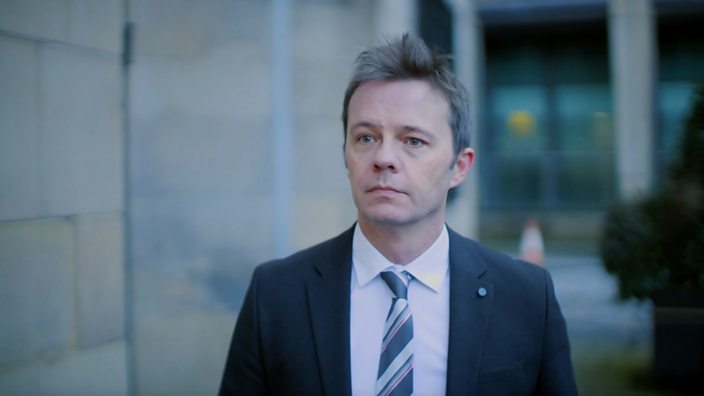 BBC/Blakeway North Productions
BBC/Blakeway North ProductionsDr Gaskell says gambling addicts will often hide the scale of their gambling problem from friends and family, sometimes for years, out of shame or stigma. And they're able to do that because gambling tends not to have the physical and visual signs you might see with other addictions.
When things spiral out of control, gambling addicts can face deep financial problems, relationship strife and depression, Dr Gaskell says. "Mental health can collapse as a consequence of a gambling addiction. We observe a lot of people who are suicidal."
At the Northern Gambling Service, patients can expect to undergo eight to ten sessions of cognitive-behavioural therapy (CBT) for gambling addiction. CBT is a talking therapy that can help patients manage their problems by changing the way they think and behave.
Patients also discuss ways to block opportunities to gamble, such as mobile phone gambling blocking software and changes to banking and access to money.
"It's been six years of ups and downs. More downs than ups," says Harri. "I'm in the process of recovery and that will be until the day I die. Forever."
Harri now shares his experience of gambling addiction on TikTok and gives advice to others. His videos have been viewed millions of times.
A spokesperson for the Betting and Gaming Council said: "We have taken a number of steps to further raise standards and promote safer plays, which include new requirements for online slots, including a minimum spin speed and the removal of other game features which speed up play such as slam stops and turbo.
"Customer offers and promotions are common to every competitive business, including the regulated betting and gaming industry.
"Customers only receive promotions if they request to do so when setting up an account, and can opt out of all marketing offers at any point."
Sources of support are available via the BBC Action Line.



